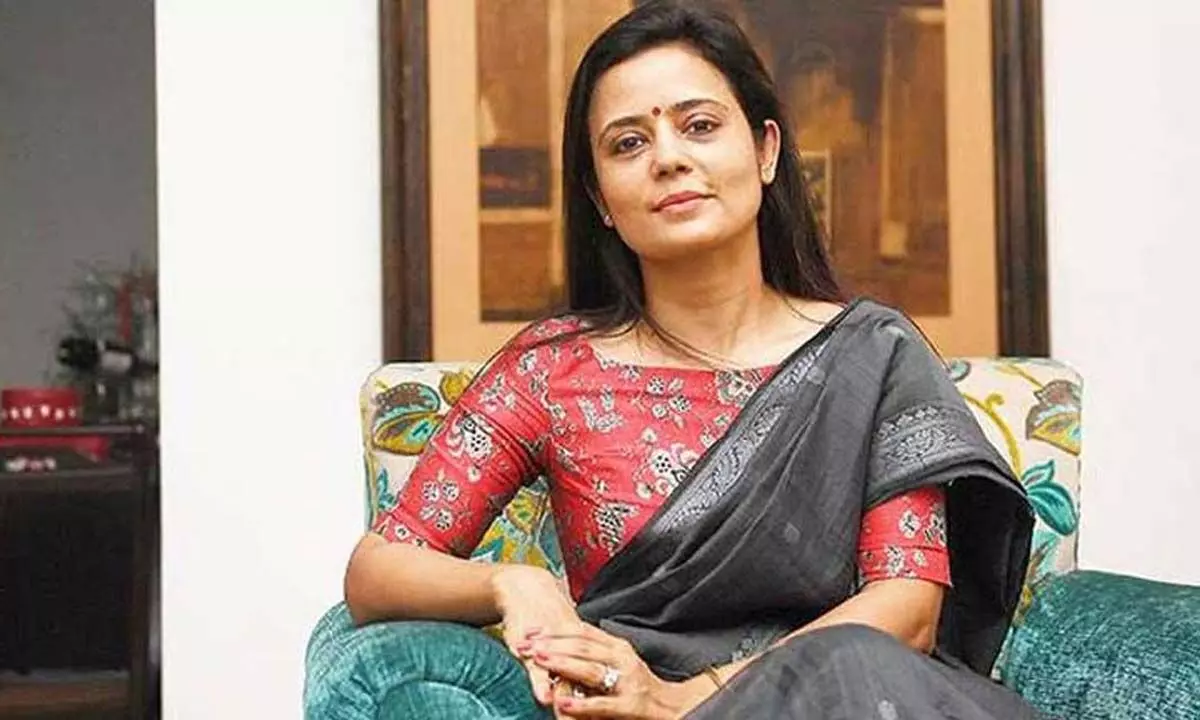Mahua Moitra's intervention is relevant
Religion is being defined by political organisations these days
image for illustrative purpose

Perhaps, for the first time in recent times, the diversity of Hinduism has come into a serious debate. The credit must go to Trinamool Congress MP Mahua Moitra, who has straight away challenged the communal regimentation going on in India in the name of religion. We have seen how, for a few years now, religion is being defined by those organisations that are essentially political. There has been little scope left for any kind of spiritual discourse.
Political outfits are delineating the cultural and ethical contours of our over five-thousand-year-old civilization. These organisations have gained legitimacy because they are able to win elections. In contravention of the Constitution, they contest elections with the claim of being representatives of one or another community. They openly use religion to grab power. In TV debates, they appear as the representatives of their communities and speak against another community, against their oath of remaining non-partisan in pursuing politics.
Moitra must be credited with making an important assertion at a time when there are only a few voices against communal regimentation. She has made her assertions without commenting on the poster of the documentary film Kaali by Leena Manimekalai. She has made the appropriate and relevant assertion that every person has the right to worship a god or goddess in his or her own way. With this assertion, she has touched the core of the issue that has been troubling the nation since the demolition of the Babri Mosque.
The majority of Indians have become victims of the mundane and non-spiritual adventures of fanatics. An organised campaign aimed at polarising society has become successful and has captured the minds of millions in our society. They have started to believe hate-generating narratives. This polarization manifests at the time when we discuss any issue.
Superficially, Moitra's observation is simple and relates to the ongoing debate, but if we go deep into it, its wide ramifications become evident. Her talk of freedom to choose one's own path of worship is in fact advocacy for preserving the religious and cultural diversity of the country. It is reassuring to see her demanding it at a time of absolute communal regimentation like the one our country is passing through. In our country, hundreds of sects coexist, and each of them allows practices that are in contradiction to each other.
She has spoken at a time when organisations such as Rashtriya Swayamsevak Sangh (RSS) and others are trying to end diversities. Several Muslim organizations are also doing the same thing. This is true for other communities as well. These organizations are attempting to make the culture and religion of their communities more and more monolithic. She has spoken at a time when organizations such as RSS and others are adamant on destroying diversity.
Several Muslim organisations are also doing the same thing. This is true for other communities as well. These organizations are attempting to make the culture and religion of their communities more and more monolithic. In most cases, regimentation is used to gain political power. It has nothing to do with the spiritual needs of society. In reality, they harm the spiritual development of society and stop the different pursuits of attainment of the highest attainment.
Though the Trinamool Congress has distanced itself from Moitra's remarks, the party has earlier fought the BJP's attempt to regiment West Bengal under the Jai Shri Ram slogan.This is inappropriate on the part of the BJP to chant only one slogan in the name of Bhagwan Shri Ram. This is the land of both Shakta and Vaishnava and carries the heavy influence of Sufism on its religion and culture.
In Bengal, Vaishnavism is heavily influenced by the Lord Shri Krishna cult and coexists with the strong Shakta tradition, which in turn follows the Tantra tradition. The BJP's attempt to regiment Hindus has so far been a failure owing to the rich religious and cultural diversity of Bengal. This is one of the main reasons the Trinamool Congress could survive the attack of the BJP.
It should not be forgotten that Moitra has the strong backing of the Shakta tradition. She has the support of the long tradition of social and religious reforms of the nineteenth century, including Ramkrishna Paramhansa's. The Paramhansa has the distinction of liberating religion from sectarian barriers. He preached that every path leads to the same goal.
There is a need to ask some uncomfortable questions as to how a religious person can aspire for power. Moitra's assertion is in fact an attack on the politics pursued in the name of religion. Her assertion has come at a time when secular political parties are avoiding taking a position.
Moitra's assertions have opened the door to a healthy debate on religious freedom and diversity. This is in line with the spirit of our Constitution. The Constitution does not recognize any other authority than the individual himself to decide his religious path. This right goes against any regimentation and unconditionally recognizes religious diversity. .
Moitra's assertion also leads us to important debates related to Brahmanism and the patriarchy. Shakta, Shaivism and Vaishnavism, all militated against the spiritual domination of Brahmanism in their own ways. They enriched the Bhakti movement and contributed to inclusion and social reforms. They coexist among the masses without causing any disquiet. we should understand another undertone of Moitra's assertion that many people, including feminists, consider Kali as a symbol of protest.
Moitra's intervention has come at a time when communalism is at its peak. It should be welcomed.
(The author is a senior journalist. He has experience of working with leading newspapers and electronic media including Deccan Herald, Sunday Guardian, Navbharat Times and Dainik Bhaskar. He writes on politics, society, environment and economy)

